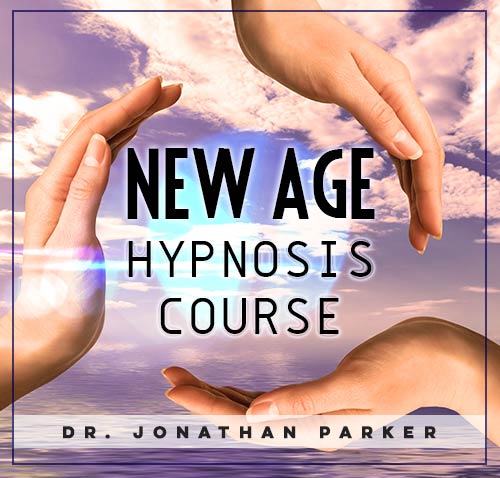Exploring Herbal Medicine in New Age Practices

Looking for more amazing products? Check out our online store and explore our collection here! Happy shopping!
Before diving in, please note: This post is for informational purposes only. If you’d like to know more about how we approach topics, feel free to check out our friendly Disclaimer Page.
Hey there, amazing readers! 
We’re committed to delivering quality posts, and your support (even just sticking around despite the ads) means everything to us. So, bear with us, and thanks for helping us keep the good vibes rolling. Now, on to the fun stuff!
TRANSLATE BUTTON AT THE END OF THE ARTICLE
Introduction to Herbal Medicine in New Age Practices
Herbal medicine has been utilized for centuries by various cultures around the world as a means of promoting health and wellness.
In recent years, there has been a resurgence of interest in herbal medicine as people seek more natural and holistic approaches to healing.
New Age practices, which encompass a range of spiritual and alternative healing modalities, often incorporate herbal medicine into their methodologies.
This article delves into the realm of herbal medicine within the context of New Age practices, exploring its history, principles, benefits, risks, methods of administration, and more.
Brief History of Herbal Medicine
The use of plants for medicinal purposes dates back thousands of years, with ancient civilizations such as the Egyptians, Greeks, Chinese, and Native Americans all incorporating herbs into their healing practices.
Herbal medicine has been a cornerstone of traditional medicine systems, including Ayurveda, Traditional Chinese Medicine, and Native American medicine.
These systems view herbs as powerful allies in restoring balance to the body and treating various ailments.
Over time, herbal medicine has continued to evolve and adapt, blending traditional knowledge with modern scientific advancements.
Understanding the Principles of Herbal Healing
Herbal healing is based on the principle that plants contain natural compounds that can exert therapeutic effects on the body.
These compounds, known as phytochemicals, interact with the body’s systems to promote healing and support overall health.
Herbal medicine practitioners believe in treating the root cause of illness rather than just alleviating symptoms.
They seek to restore harmony and balance to the body, mind, and spirit through the use of plant-based remedies.
This holistic approach considers the individual as a whole, addressing physical, emotional, and spiritual aspects of health.
Benefits and Risks of Herbal Medicine
Herbal medicine offers a wide range of benefits, including:
Natural Healing: Herbs provide a natural alternative to pharmaceutical drugs, often with fewer side effects.
Holistic Approach: Herbal medicine addresses the root cause of illness and considers the whole person.
Customizable Treatments: Herbal remedies can be tailored to individual needs and preferences.
Cultural and Spiritual Connections: Many herbs hold cultural and spiritual significance, deepening the healing experience.
However, it is crucial to acknowledge the risks associated with herbal medicine, such as:
Potential Interactions: Herbs can interact with medications, leading to adverse effects.
Quality Control: The quality and potency of herbal products can vary, posing risks of contamination or mislabeling.
Allergic Reactions: Some individuals may be allergic to certain herbs, leading to unwanted side effects.
Different Herbs Used in New Age Practices
New Age practices incorporate a wide variety of herbs into their healing rituals and treatments.
Some commonly used herbs in New Age herbal medicine include:
Lavender: Known for its calming and relaxing properties, lavender is often used to alleviate stress and promote sleep.
Echinacea: A popular immune-boosting herb, echinacea is used to prevent and treat colds and infections.
Chamomile: Chamomile is prized for its soothing properties and is often used to reduce anxiety and promote relaxation.
Peppermint: Peppermint is known for its digestive benefits and is often used to relieve bloating and indigestion.
Ashwagandha: An adaptogenic herb, ashwagandha helps the body adapt to stress and promotes overall vitality.
These herbs, among many others, play a vital role in supporting health and wellness in New Age practices.
Methods of Herbal Medicine Administration
Herbs can be administered in various forms to achieve optimal therapeutic effects.
Some common methods of herbal medicine administration include:
Teas and Infusions: Herbs are steeped in hot water to create teas that can be ingested for their medicinal benefits.
Tinctures: Herbs are extracted in alcohol or glycerin to create concentrated liquid extracts that can be taken orally.
Capsules and Tablets: Herbal extracts are encapsulated or compressed into tablets for convenient consumption.
Topical Applications: Herbal ointments, salves, and oils can be applied to the skin for localized healing effects.
Each method of administration offers unique benefits and may be chosen based on individual preferences and health needs.
Incorporating Herbal Medicine into Daily Life
Integrating herbal medicine into daily life can be a rewarding and empowering experience.
Here are some tips for incorporating herbal remedies into your routine:
Start Small: Begin by incorporating one or two herbs into your daily routine to experience their effects.
Learn and Experiment: Educate yourself about different herbs and their properties, and experiment with various preparations to find what works best for you.
Consult a Professional: Seek guidance from an herbal medicine practitioner or holistic health expert to ensure safe and effective use of herbs.
Create Rituals: Incorporate herbs into rituals and practices that promote relaxation, mindfulness, and overall well-being.
Listen to Your Body: Pay attention to how your body responds to herbal remedies and adjust your use accordingly.
By incorporating herbal medicine into your daily life, you can enhance your health and well-being in a natural and sustainable way.
Seeking Professional Guidance for Herbal Healing
While herbal medicine can offer many benefits, it is essential to seek professional guidance when using herbs for healing purposes.
Herbal medicine practitioners, naturopathic doctors, and holistic health experts can provide personalized recommendations and ensure safe and effective use of herbs.
They can help you navigate the complexities of herbal medicine, create tailored treatment plans, and monitor your progress over time.
Seeking professional guidance can enhance the effectiveness of herbal healing and minimize the risks associated with improper use of herbs.
Herbal Medicine in Alternative Therapies
Herbal medicine is often used in conjunction with other alternative therapies to enhance healing and promote overall well-being.
Practices such as acupuncture, massage therapy, aromatherapy, and energy healing can complement herbal medicine by addressing different aspects of health and healing.
When combined with other alternative therapies, herbal medicine can offer a holistic approach to wellness that addresses the body, mind, and spirit.
By integrating herbal medicine into alternative therapies, individuals can experience a synergistic effect that enhances the overall healing process.
Research and Studies on Herbal Medicine
While herbal medicine has been used for centuries, modern research and studies continue to explore the efficacy and safety of herbal remedies.
Scientific research is uncovering the underlying mechanisms of action of herbs, identifying active compounds, and evaluating their therapeutic potential.
Clinical trials and meta-analyses provide valuable insights into the effectiveness of herbs for treating various conditions, such as anxiety, depression, pain, and inflammation.
By staying informed about the latest research on herbal medicine, practitioners and individuals can make evidence-based decisions about their health and wellness.
Cultivating and Harvesting Medicinal Herbs
For those interested in cultivating their own medicinal herbs, the process of growing and harvesting herbs can be a rewarding and sustainable practice.
By growing herbs in your garden or indoor space, you can ensure a fresh and abundant supply of medicinal plants for personal use.
When harvesting herbs, it is essential to do so at the right time to preserve their potency and therapeutic properties.
Proper drying and storage techniques can also help maintain the quality of herbs for long-term use.
Cultivating and harvesting medicinal herbs allows individuals to connect with the healing power of plants and take control of their health and wellness.
Conclusion: Embracing Herbal Medicine in New Age Practices
In conclusion, herbal medicine plays a significant role in New Age practices as a natural and holistic approach to healing.
By understanding the history, principles, benefits, and risks of herbal medicine, individuals can incorporate herbs into their daily lives to promote health and well-being.
Whether used in teas, tinctures, capsules, or topical applications, herbs offer a myriad of therapeutic benefits that support the body, mind, and spirit.
Seeking professional guidance, integrating herbal medicine with alternative therapies, and staying informed about research are essential steps towards embracing herbal medicine in New Age practices.
By cultivating and harvesting medicinal herbs, individuals can deepen their connection with nature and unlock the healing potential of plants in their lives.
Embracing herbal medicine in New Age practices allows individuals to take charge of their health and wellness in a natural and empowering way.

The Enlightenment Journey is a remarkable collection of writings authored by a distinguished group of experts in the fields of spirituality, new age, and esoteric knowledge.
This anthology features a diverse assembly of well-experienced authors who bring their profound insights and credible perspectives to the forefront.
Each contributor possesses a wealth of knowledge and wisdom, making them authorities in their respective domains.
Together, they offer readers a transformative journey into the realms of spiritual growth, self-discovery, and esoteric enlightenment.
The Enlightenment Journey is a testament to the collective expertise of these luminaries, providing readers with a rich tapestry of ideas and information to illuminate their spiritual path.
Our Diverse Expertise
While our primary focus is on spirituality and esotericism, we are equally passionate about exploring a wide range of other topics and niches 

To ensure we provide the most accurate and valuable insights, we collaborate with trusted experts in their respective domains 
Our blog originally focused on spirituality and metaphysics, but we’ve since expanded to cover a wide range of niches. Don’t worry—we continue to publish a lot of articles on spirituality! Frequently visit our blog to explore our diverse content and stay tuned for more insightful reads.
Hey there, amazing reader! 
Check out our store here and take a peek at some of our featured products below! Thanks for being awesome!











